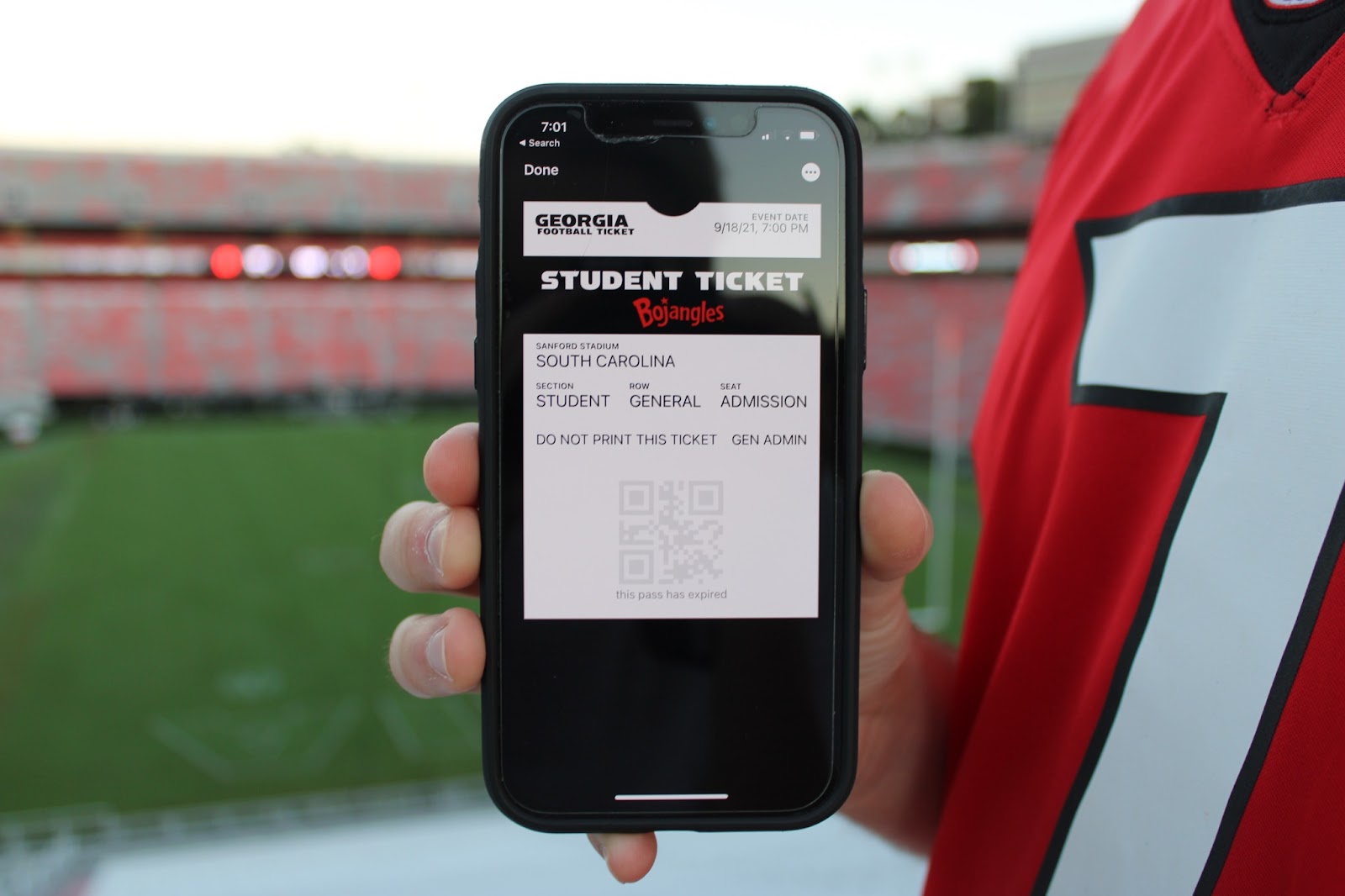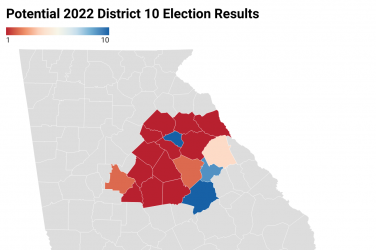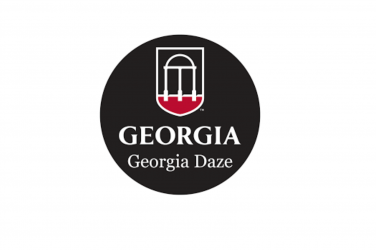There are certain moments all entertainment fans want to remember forever. To evoke this sense of nostalgia, ticket stubs are often saved as treasured mementos. Preserving these keepsakes matters for fans like University of Georgia professor Keith Herndon, who hasn’t missed a home football game since 1979.
“This is my 43rd season of perfect home attendance,” said Herndon. “Over the years, I’ve kept tickets from special games.”
However, traditional tickets, like many other things in our lives, have undergone a digital transition. Over the last decade, cardstock tickets began to gradually disappear with the advent of print-at-home and mobile tickets. The coronavirus pandemic hastened this existing digital trend, accelerating years of change in a few months’ time.
From college football to community performing art centers, all ticketing operations have felt this disruption, and so have their patrons.
This year, the University of Georgia’s athletic department joined schools across the country in leaving traditional football tickets in the past. UGA’s digitization journey had begun before the pandemic hit, providing them with a head start.
“We have been looking at moving digital for a couple years, but I think that process was sped up for us by the pandemic,” said Kevin Welch, director of digital strategy, analytics, and revenue integration at UGA athletics. “We would have liked or preferred to have done it more systematically, but the pandemic certainly forced our hand a little bit because we were trying to provide a safe environment for our fans.”
The switch forces some of these loyal fans who aren’t tech savvy, namely older ones, to have smartphone capability for attending games.
“I had an initial problem gaining access to some tickets a friend sent me,” said Herndon, a season ticket holder. “The transfer process didn’t go as smoothly as I hoped it would.”
As they navigate their first season, guiding fans to download new apps or use their smartphone wallets are some of the technical challenges anticipated by UGA Athletics. However, beyond these practical obstacles exists the more challenging task of altering fan attitudes.
The Georgia Bulldogs have been playing home games in Sanford Stadium since 1929, sustained by the traditions of a devoted fan base.
“There are lots of obstacles when you’re looking at changing a fan base’s mentality and approach toward game day,” said Tim Cearley, UGA’s associate athletic director of ticket operations.
Traditional Georgia Football tickets surround a new mobile ticket, displayed in a smartphone wallet. Printed tickets provided fans with a distinct memory of each game but are now fading into the background as digital tickets take center stage.
“Printed tickets, with their great photos and fancy graphics, made them feel like very important documents,” said Herndon. “They made you feel like you were attending a special event — a Bulldog game.”
It’s not only large-event venues like UGA athletics experiencing these changes. Small performing arts groups like the Athens Symphony Orchestra (ASO) have also faced challenges.
The ASO is a local organization, sustained by volunteer musicians and community support. Concerts take place at The Classic Center Theatre in downtown Athens, accommodating 2,100 audience members compared to the 92,000 available seats at Sanford Stadium.
The symphony had no plans to convert to digital tickets until the pandemic, but Allison Perfetti found this on her list when she was first assigned to her role as The Classic Center Theatre’s general manager.
Everything we did was paper,” Perfetti said. “So, the biggest challenge for me in summer of 2020 was turning us into a digital, paperless ticket operation.”
Within performance arts, classical music has been singled out as an especially challenging area at this time as it tends to engage older patrons.
“I think we still attract the basic audience we have, which frankly is made up of more middle aged, older folks,” said Dick Hudson, executive director of the ASO.
“That older, 70 plus demographic is very resistant to interacting with the digital but extremely important to us,” said Perfetti. “We’re just trying to not alienate them.”
Moving forward, the ASO will focus on customer service methods to help their audience shift to mobile.
“What we try to do is really be available to our customers through all channels,” said Perfetti. “All of our communications include detailed ‘how to’ guides and templates for teaching your audience how to interact with mobile tickets. But then again, the people that don’t want to interact with it aren’t going to go to our site anyways.”
The Classic Center has digitized their ticketing operations, but they continue collaboration with the ASO Board. Traditional tickets will still be printed for sponsors, board members, and other key contributors.
“People like that matter,” said Hudson.
The future of ticketing will ultimately be more convenient, secure, sustainable, and cost efficient. However, according to patrons like Herndon there are significant trade-offs.
“The use of digital tickets has reduced that aspect of a game to simply the transaction,” Herndon said. “I don’t feel any emotional connection to a digital ticket.”
This loss of emotional connection compromises memories, tradition, and fan identity across the entertainment industry. Time alone will tell the consequences of this shift, but the inexorable change signals the end of an era for tickets with any purpose other than event entry.
Eloise Cappelletti is a student in the Grady College of Journalism and Mass Communication at the University of Georgia.









Show Comments (0)